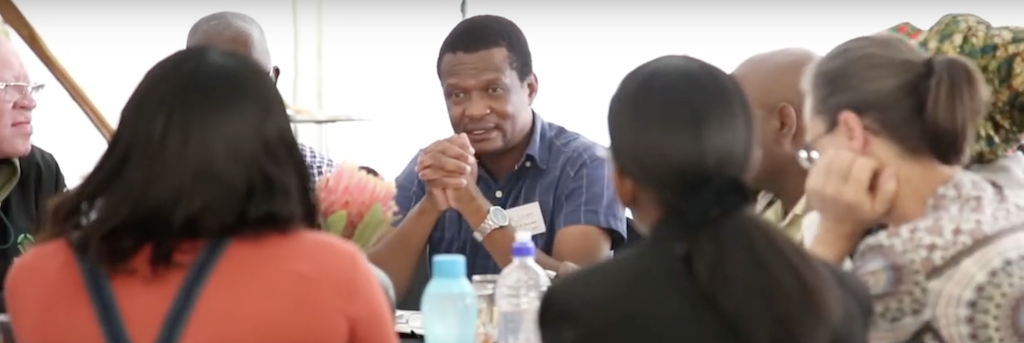Latest Resources

5 March 2019
WHY FARMERS FIND FISP PROBLEMATIC (Part 1 of 4 videos)
In August 2018, The Rural Women’s Assembly (RWA) and the African Centre for Biodiversity (ACB) hosted a speak-out with SADC smallholder farmers in Windhoek, Namibia, on Farm Input Subsidy Programmes (FISPs). FISPs are government agricultural programmes to promote the use of Green Revolution inputs (hybrid seed, synthetic fertilizer and agro-chemicals) produced by multinational corporations. WHY […]

15 October 2018
Three animations on GMOs in South Africa
The African Centre for Biodiversity (ACB) is pleased to share with you a three part animation series on GMOs in South Africa. These animations (each around 5 minutes long) are available on our YouTube Channel. The animations speak to the following topics: History of Maize Cultivation and Consumption in South Africa GMOs in South Africa […]

13 August 2018
Farm input subsidy programme (FISP) info pamphlet
This pamphlet offers a quick background on the FISPs and the key issues and concerns. It explains what FISPs are, their aims, why the FISPs are failing to meet their objectives, how they promote small-scale farmer dependency, and ways of transitioning out of FISPs towards more appropriate forms of smallholder farmer support. African Centre for […]

6 July 2018
Smallholder Farmer Autonomy Over Seed Production
At the National Seed Dialogue and Celebration, hosted by the African Centre for Biodiversity at Constitution Hill in December 2017, participants shared their experiences and discussed options and priorities. Smallholder Farmer Autonomy Over Seed Production is the final video in a series of six from the ACB hosted event. Smallholder farmers feed the world, providing […]

22 June 2018
Value of Household and Community Seed Banks
In South Africa, different initiatives are under way to build farmer-based seed bank networks both in the public sector and by civil society. At the National Seed Dialogue and Celebration, hosted by the African Centre for Biodiversity at Constitution Hill in December 2017, participants shared their experiences and discussed options and priorities. This is the […]

31 May 2018
Participatory Plant Breeding and Smallholder Farmers
The National Seed Dialogue and Celebration was hosted by the African Centre for Biodiversity at Constitution Hill in December 2017. The third video in this series, Participatory Plant Breeding and Smallholder Farmers looked at issues of smallholder farmers & seed breeding/crop improvement and the potential roles of smallholder farmers in these processes were discussed. Since […]

18 May 2018
Spiritual and Cultural Value of Seed in South Africa
Spiritual and Cultural Value of Seed in South Africa is the second video in a six part series covering discussions from the National Seed Dialogue and Celebration, an event hosted by ACB. The seed, like the big bang, or evolution, or the atom … bears the mystifying tale of a beginning. We fill our bellies […]

7 May 2018
Politics of seed in South Africa
Hosted by the African Centre for Biodiversity at Constitution Hill in December 2017, the National Seed Dialogue and Celebration honoured the role of smallholder farmers in maintaining and nurturing the diversity of seed in South Africa and regionally, who are being displaced and overridden by a growing private seed sector. The event included thought-provoking dialogues […]

8 February 2018
Monsanto’s risky triple herbicide-tolerant soybeans to enter South Africa’s food systems
ACB warns that the South African government has received an application for the commodity clearance (import for food, feed and processing) of ‘triple-stacked variety of genetically modified (GM) soya – MON 87708 X MON 89788 X A5547-127 by Monsanto South Africa (Pty) Ltd in October 2017. This GM Soybean variety represent has been genetically engineered […]

29 January 2018
Comments on the Competition Amendment Bill 2017
ACB has responded to the Economic Development Department (EDD) call for comments on the Competition Amendment Bill 2017. The amendments aim to strengthen the powers of the competition authorities to proactively investigate and develop remedies to deconcentrate markets. Although we do not agree with EDD’s entire approach to concentration (for example, that concentration and economies […]
